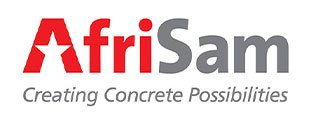

WTO chairs programme launched in South Africa
The official launch of the South African chapter of the World Trade Organisation (WTO) Chairs Programme (WCP) took place at North-West University’s (NWU’s) Potchefstroom campus on September 17. This followed the WTO’s announcement on May 28 of its decision to award the WCP to the trade research entity at NWU, which is headed by Professor Wilma Viviers.
The WCP, which spans a four-year period and involves a substantial grant, aims to create a better understanding of the multilateral trading system among academics and policymakers in developing countries through a range of curriculum development, research and outreach activities conducted in selected research institutions. In its release NWU indicated that Viviers’ appointment was the outcome of a rigorous international selection process aimed at identifying academics and academic institutions that, through their analytical work in the areas of trade policy and practice, are well placed to make a significant contribution to the policymaking process in their respective countries and regions.
The WCP is implemented through partnership agreements between the WTO secretariat and the selected institutions. For its part, the WTO provides financial, scientific and technical support for its partners in three interdependent pillars, namely research, curriculum development and outreach activities, for up to four years. At the end of this period, it is intended that the programme will be consolidated and continued, possibly with financial support from other sources.
The intention of the WCP is to assist academic institutions in providing students with a deeper understanding of trade policy issues. According to NWU, through analytical input into the formulation and implementation of trade policy, the WCP is expected to help strengthen the participation of the beneficiary countries in international trade.
In attendance at the launch was WTO deputy director-general David Shark, head of the European Union (EU) delegation to South Africa Ambassador Roeland van de Geer and a number of EU member State ambassadors, North West Premier Supra Mahumapelo, international-trade economist Maarten Smeets and several senior government officials.
Graphite Electrodes Duty
On September 5, the South African Revenue Service (Sars) informed of a reduction in the ‘general’ rate of customs duty on graphite electrodes of a kind used in furnaces, classifiable in tariff subheading 8545.11, from 10% ad valorem to free (0%).
The application that resulted in the reduction was lodged and published by the International Trade Administration Commission of South Africa (Itac) on March 20. Itac argued that, since the current Southern African Customs Union (Sacu) manufacturer is to cease manufacturing operations, the duty will no longer serve the purpose of supporting domestic manufacturing, employment and investment in the relevant industry, and the existence of a duty could place an undue cost burden on the downstream industry.
This followed an Itac report, dated March 13, informing of the termination of the investigation into the alleged dumping of graphite electrodes for use in furnaces, originating in or imported from the People’s Republic of China. This investigation was initiated on November 22, 2013, as a result of an application by GrafTech South Africa, the only graphite electrodes producer in the Sacu region. On February 6, Itac received a letter from GrafTech notifying the commission that it had decided to cease its operations and requested that the antidumping application be terminated.
Indonesia Acceeds to Revised Kyoto Convention
On August 29, the World Customs Organisation (WCO) announced that the ambassador of the Republic of Indonesia in Brussels had sent the secretary-general of the WCO his country’s instrument of accession to the International Convention on the Simplification and Harmonisation of Customs Procedures (Revised Kyoto Convention, or RKC). This act is the culmination of an extensive process, which has allowed Indonesia to carry out a comparative analysis of its legislation with the provisions of the RKC and to attain the level of compliance required to embark on implementing this international instrument.
Having entered into force on February 3, 2006, the RKC now has 95 contracting parties. Considered as forming the basis for effective, efficient and modern customs procedures, it includes key elements like the application of simplified customs procedures in a predictable and transparent environment, the optimal use of information technology, risk management, a strong partnership with trade and other stakeholders, and a readily accessible system of appeals.
The WCO welcomed the fact that the number of RKC contracting parties continues to grow, especially as this instrument is at the core of the WCO’s Economic Competitiveness Package and is also crucial to implementation of the WTO Agreement on Trade Facilitation (TFA). The accession demonstrates Indonesia’s commitment to implementing customs procedures adapted to the international trade environment in a context marked by the conclusion on December 6, 2013, in Bali, Indonesia, of the TFA.
Cement Dumping Investigation
Itac has informed of the initiation of an investigation into the alleged dumping of Portland cement, classifiable under tariff subheading 2523.29, originating in or imported from Pakistan, on the Sacu market, causing material injury to the cement industry in the regional bloc. The application was lodged by AfriSam, Lafarge Industries South Africa, NPC Cimpor and PPC, which submitted sufficient evidence and established a prima facie case to enable Itac to arrive at the conclusion that an investigation should be initiated on the basis of dumping, material injury and/or threat of material injury and causality.
Comment is due by October 2.
Nuclear Vessel Licence Application
On August 22, notice was given of Eskom’s application for a nuclear vessel licence in terms of the National Nuclear Regulator Act 47 of 1999. The application was made to enable a non-nuclear-powered vessel to dock in the Cape Town harbour over the period November to December, for the purpose of transporting nuclear fuel destined for the Koeberg nuclear power station.
Comment is due by September 22.

